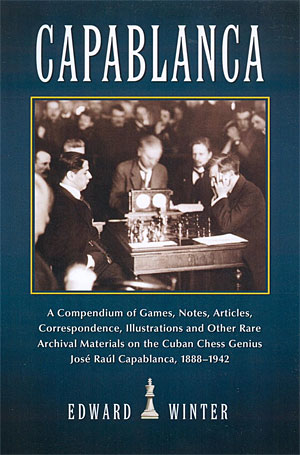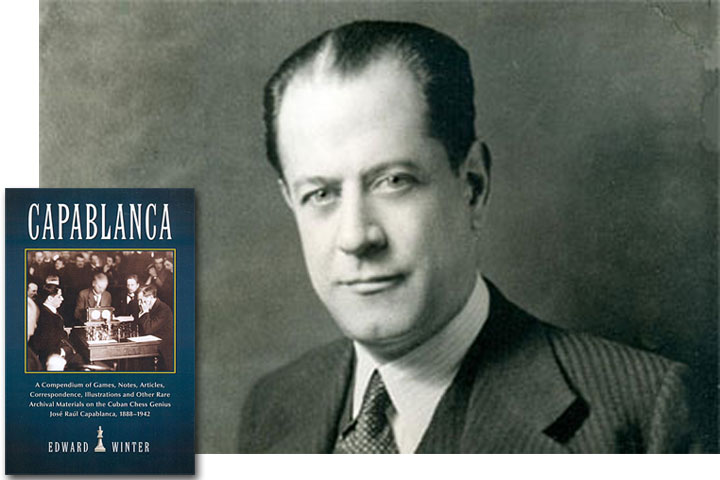
To summarize, even broadly, the contents of Chess Notes is impossible, and you can never imagine what may come next in a column which has no interest in cultural or linguistic barriers. For instance, C.N. 4400 was about the comic book The Mighty Thor; C.N. 4401 was a detailed study of Jean-Jacques Rousseau and chess.
For newcomers and regular readers the Factfinder is a perfect entry-point. Just dip in and immerse yourself in the wonderful world of history and lore, a world in which the Editor and his correspondents carefully present original information and avoid loose statements and speculation. Insistence on such standards has had an enormous, positive influence on chess literature.
Or dip in via the Archives page, which lists hundreds of feature articles catering for every taste. Apart from "pure" history (Edward Winter has made a particular study of the world chess championship), there are hundreds of articles ranging from Sergei Prokofiev (in English and Russian versions) to - a relatively recent addition – a set of pithy thoughts about chess. Those who like puzzles are well served, as are those with an interest in music and prodigies. The article Chess and Women is another favourite. Or perhaps you would like to know about the 20 or so books on Magnus Carlsen in Edward Winter's vast chess library. Whatever the topic, Chess Notes provides material that is fresh, another good example being the lengthy article on the 1972 Spassky-Fischer match.
Articles are marked by reliable scholarship and proper documentation, but also deadpan humour. Brilliant writers like C.J.S. Purdy are given detailed, appreciative treatment. Chess figures at the opposite end of the quality scale get their just deserts from a website which is rigorously objective and forthright. Good chess writers have nothing to fear, and everything to gain; Chess Notes is generous in its praise of top-quality authors.
Four books have resulted from the Chess Notes series: Chess Explorations, Kings, Commoners and Knaves, A Chess Omnibus and Chess Facts and Fables. In his Foreword to A Chess Omnibus Jan Timman wrote:
"Writers on chess history and the games of yesteryear are not normally pathfinders or perfectionists, but Edward Winter is an exception, taking great pains not only to tackle difficult research tasks but also to present the facts precisely. Throughout his writings he keeps the reader fully aware of the source of the information offered, and such respect for truth, which is also respect for the reader, is rare indeed in chess literature."
 Capablanca, by Edward Winter
Capablanca, by Edward Winter
Just over 30 years ago, Edward Winter brought out a monograph about Capablanca which prompted testimonials of a kind that few writers have received. The McFarland webpage includes these appreciations:
- "By humanizing someone who was always deemed larger than life, and was idolized by chessplayers and non-chessplayers alike, Edward Winter, the world's greatest and most respected chess historian, has given us a piece of literature that has become a legend unto itself, and is universally viewed as one of the greatest books ever written about chess." Jeremy Silman.
- "Undoubtedly one of the best chess books I have read." Nigel Short.
- "A magnificently researched work by the world's most renowned chess historian." Yasser Seirawan.
- "A gem. I think Capablanca would have chosen it as the best of all the books on him. It represents a tremendous amount of work. A wealth of material has been amassed with the precision and care of a devotee. It is also a beautifully produced tome, with that sober elegance so characteristic of Capablanca himself." Olga Capablanca Clark.
The original hardback edition of Capablanca is out of print, but the 2011 paperback edition is still available, and a personally inscribed signed copy can be acquired direct from the author. Some of his other books can also be ordered from the same page.



















 Capablanca, by Edward Winter
Capablanca, by Edward Winter




